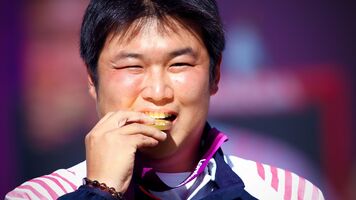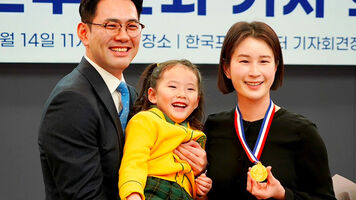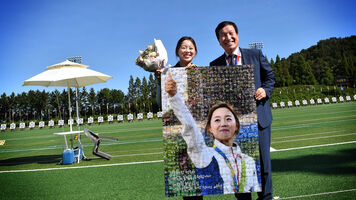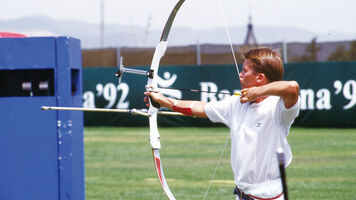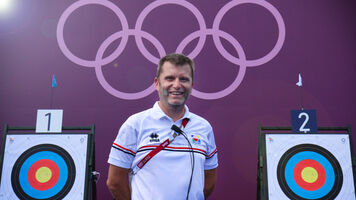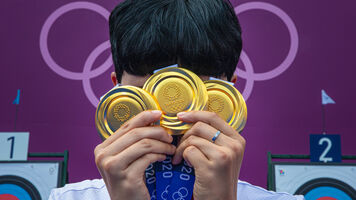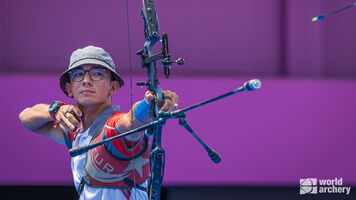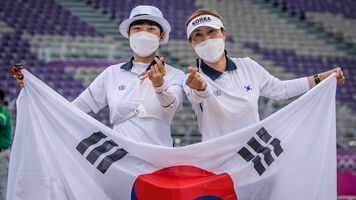Should Ki Bo Bae be considered one of Korea’s greatest archers?
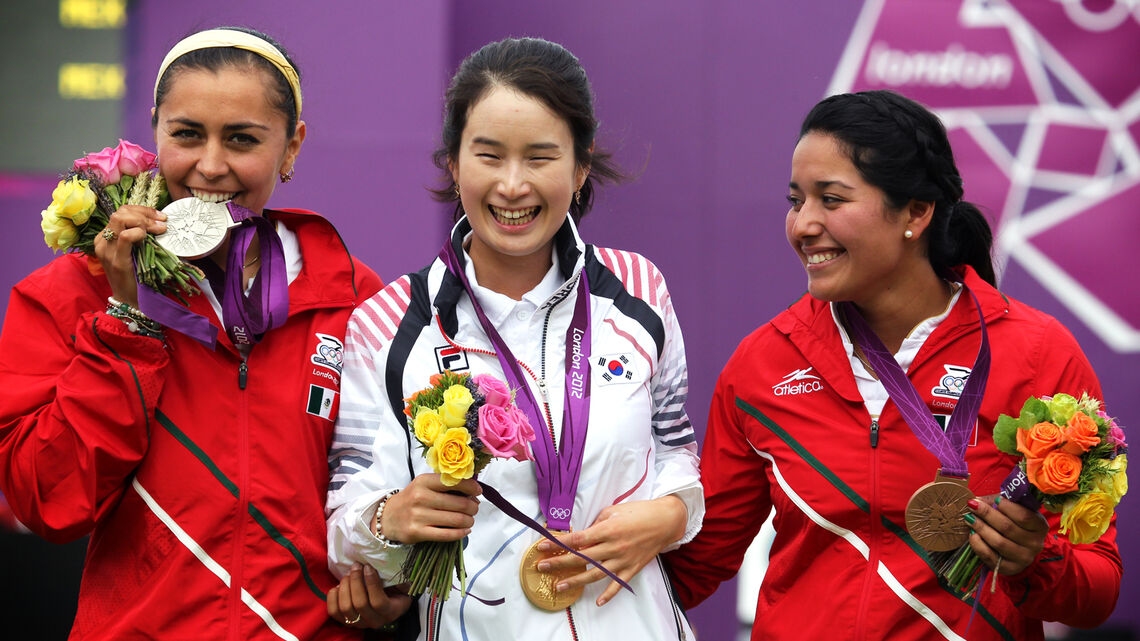
Ki Bo Bae won the 2012 Olympics with a less-than-ideal shoot-off arrow.
Tied with Mexico’s Aida Roman at the end of the recurve women’s final – at the first Games to use the set system to decide matchplay – Bo Bae shot a high eight, about one centimetre out of the nine.
“It wasn’t like a shot a very good score,” said the now-34-year-old during a recent interview for World Archery’s Behind the Bow web series.
“To be honest, I thought my chance of winning was slim.”
Roman, who had rallied from deficits throughout the match, had plenty of room but couldn’t fit her shot inside. Her tiebreak arrow landed left, a wider eight, and the Korean archer became Olympic Champion in Lord’s Cricket Ground.
“That moment it was confirmed was so emotional,” said Ki. “Those moments. Everything is still very vivid. The weight of that gold medal as it hung from my neck. All those things are still in my memory.”
Her legacy in Korea manifests itself in the Gwangju International Archery Centre, which is named after Ki Bo Bae and was used to host the qualifying and eliminations at the second stage of the 20222 Hyundai Archery World Cup, and in the archers that followed her to Gwangju Women’s University.
Choi Misun, who won a team gold at Rio 2016, and reigning Olympic Champion An San came up through the club. (An San still shoots there.)
But despite an adoring archery fanbase, Ki Bo Bae’s name is not really mentioned in the same breath as the Korean recurve women’s greats like Kim Soo-Nyung and Park Sung-Hyun.
Is it down to that slightly unconvincing London tiebreak – and should she really be considered one of the all-time bests in the sport?
Having followed up her win in London with another team gold and individual bronze at Rio 2016, Ki Bo Bae sits third in the all-time medal list for archers at the Olympics, behind the two legends mentioned above.
She sits ahead of Sydney winner Yun Mi Jin and Tokyo triple gold medallist An San – who, despite her recent success, may still never compete at the Games again.
“It’s not easy to go to two Olympics as a Korean athlete,” said Bo Bae, before explaining why she returned for round two in Rio. “It was the cheers and applause from the crowd. And I wanted to experience the feeling of stepping on the podium again.”
Bo Bae won the World Archery Championships and Universiade in 2015.
Her last international tournament was the 2017 Hyundai Archery World Cup Final in Rome, where she won her third title on the international circuit.
For some half a decade, starting with her win at the Olympics, she was the golden standard in women’s archery.
Having stepped away from the spotlight to focus on her studies (now a doctorate in education and archery coaching) and building a family, Ki Bo Bae has lately been close to making the team once again. But it seems that making a third Games – a feat that would undoubtedly lift her legacy and that very few in Korea achieve – might be one step too far.
“Making the Korean national team is really so, so incredibly difficult,” she said. “When I think about the Olympics in Paris, I get a headache.”
“Rather than wearing the Korean flag again, I’d like to put one step in front of the other and start preparing for retirement.”
A superstar in her prime? Yes. One of the all-time greats? Maybe.




